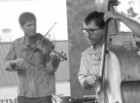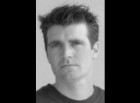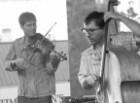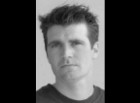For Joël Fafard, it's all about getting back to his roots and relying on the basics, both in his personal life and in his increasingly successful music career.
Having lived in and around the Regina area for most of his life, Joël loves Prairie life. In fact, most of his songs are based on themes of the purity and simplicity of Saskatchewan people, landscapes, and life in general.
Since the release of his first album in 1996, Joël has come a long way.
In September 2003, Joël released his fourth album, Rocking Horse - an instrumental project which is his favourite and most successful album to date.
In fact, Joel has just signed a licensing deal with Skalde Musik in Europe and a tour is in the works for this fall. He also has a variety of shows booked across Canada this spring and summer.
Joel says none of this would have been possible if it wasn't for his new philosophy in life: He strives to become less distracted by the menial things going on around him, and more focused on the things that are truly important. Joël and I discussed how this philosophy affects both his personal life (as the father of two children, aged four and eight), and as a full-time musician who does his own producing, booking and marketing.
How did you first become involved in the Saskatchewan music industry?
I just wanted to be a musician. My dad (artist Joe Fafard) was always involved in the music industry, so I had the sense that not having a normal job was…normal.
What did you learn from recording your first album in 1996, doing it all yourself?
I learned all about how to produce an album, since I foolishly took on the producer role. I gained experience with ProTools and learned a bit about mixing and arranging. Thankfully I was working with Larry McCormick and Warren St. Onge (co-producer on Farmer's Tan). I would not have got through it with out them.
How did you meet the other members in your band?
I was in a band called Scruj MacDuhk (a Juno nominated band) based out of Winnipeg. The singer in the band was Ruth Moody, who is now with the Wailin' Jenny's. Her brother Richard - who plays the violin and viola - had a bandhouse on Balmoral Street. It was a fun place; I used to sleep on the couch, and jam with some of the guys from Mangy Coyote who also lived in the house. Gilles Fournier (the present double bass player in the band) was the bass player in Scruj, so I was very familiar with his playing. I got to know Richard better when we toured Ontario together later that year as a duo. Richard also played on Farmer's Tan.
Can you describe the relationship you have with your band?
We're all pals. It's fun for us to hang out. And, rehearsals are the best part of it.
How would you describe your musical style?
I've created a fusion between bluegrass, blues-Celtic, and country. I just formed it into my own thing and throw it out finger-style. It has some urban elements, but to me, it always feels more like a rural music.
What inspires you to write your songs?
I think the instrumentals come from my spirituality. They're easy; they just come to me. If I'm open-minded and feeling things, they present themselves to me, and I don't have to do a lot of work.
Can you describe the songwriting process for your non-instrumentals?
It's different from writing instrumentals. They don't come so easy. Sometimes it's fun and I enjoy it, but finishing a song…it's a lot of work. What I do go for in my songwriting is to write about moments. I like to create a moment rather than say a story, but the odd story does sneak through.
How do you feel about your present album - your first fully instrumental album?
Rocking Horse is the album I always wanted to make. That's what I wanted my first record to be, it just didn't really turn out that way. And then, every record got further away from that somehow. I always thought I was being true to my art, but, I think I was always looking more at what I thought was going to work, what people were going to like, and what would be marketable. Also my wife asked me, 'What do you want to do?' For the first time it actually hit me. 'Oh, I want to make an instrumental record.'
I was inspired by the late Freyda Epstien (Trapezoid / Acoustic Attitude) from North Carolina, who I met before I made my first album. She's one of my favourite musicians. She has this great sense of how to record acoustic music that sounds really natural. I have one of her records and she touched me on a spiritual level. I admired the honesty that she was able to play with, how much spirituality she was able to bring to her music and that you could really feel it. Freyda also introduced me to the Alexander Technique, which is one way you can really open yourself up to that kind of energy.
How long did your album (Rocking Horse) take to produce/record/write?
We started four months from the day I realized I wanted to do it. First I flew to Winnipeg and we had three days of rehearsal time to practice our interaction together, since we weren't going to be able to play at the same time in the studio. Later Gilles, and then Richard, came to Regina and we each had two days to lay down our tracks. We just played the tunes, no metronome. It was a nice way to make a record. Engineer Chris Haynes has a great ear and was wonderful to work with. At the mixing stage Neil Cameron (of Private Ear Recording Studio in Winnipeg) thought up a little trick that allowed us to make the instruments bleed so it sounds like we were all in the studio together. Next time I would like to record direct to analog tape with everybody in the studio at once.
Did you have a certain theme in mind when you recorded Rocking Horse?
I just wanted to make a record that showcases the way I play guitar, and have the wonderful sounds of Richard and Gilles on viola and double bass. I added five bonus tracks of solo guitar at the end of the album as well.
What's your favourite song from the album?
I like all of them; whichever one I'm playing at the moment. That's what I felt about this record - it didn't have any weak spots. I hope others feel the same way too.
What strategy have you taken to produce and market your recent album?
There was no marketing plan. So, once I was finished recording it, I just starting sitting in my office and thinking, 'What am I going to do with it today?' It is important to do that every day. I'll just start focusing on an Ontario tour and do some research on the Internet. I find out where I can play, I mark everything (I want to do) on my calendar and start sending out (press kits), then try to make it real. Somehow it all becomes real and then I do the same thing with BC and so on. One day at a time is what seems to work best for me. It's sort of marketing in itself, in a way, especially because of CBC radio play and opportunities like showcasing at the Western Canadian Music Awards.
Do you have any advice for musicians who want to start doing their own bookings?
Don't forget the media. When you are finished booking make sure you have plenty of time to make media calls and notify CBC, college radio, community radio, newspapers, entertainment magazines, and any possible television spots. Make sure the gigs you have booked turn out. You want to go back and a good crowd is the best way to ensure that.
Also, never sell yourself short when it comes to fees because the cheaper you go, the less they will value you, and the less you will value yourself.
How do you think your musical style has changed over the years?
It's become more focused. I think people who have listened to my records will recognize that. There's always been a little bit of what I'm doing now in every record, but I wasn't really focused in on the part I enjoy the most. This has actually turned around my live performances, because I am always performing tunes that I really want to play.
What do you enjoy most about performing?
Trying to channel energy to people and give them something. It's all about what you can give and that's the part that's enjoyable. If you forget about that, it's not as fun. When you stop thinking about all the little intricacies, like nailing the song, you actually nail it.
What do you enjoy most about touring?
I like getting up in the morning, getting into my car and just driving to the next place, excited about being able to do it all over again for a new group of people. I spend part of the drive asking myself, 'What is it that I want to give tonight?' I enjoy that time of thinking and not having the radio on.
How do you feel about doing your own bookings and promotions for shows and tours?
It takes more time, but I end up making more money and I seem to have more success because I'm the one who cares about it the most. I also know exactly what I want to have done. When you have someone working for you, you always have to tell them that anyway. So, why not just get on the phone yourself and do it?
What's been your most memorable or meaningful musical experience?
Everything in the last six months. I'm on a journey right now that I'm really enjoying and I'm learning a lot from every show. I've been able to open up to the music right now. I'm more focused and less distracted then I used to be. Learning how to meditate has been a big part of that. Now I'm present in what I'm doing and that's really changed my life.
What do you feel is the most challenging thing about being a musician?
Remembering that you're a musician - and not getting caught up in the business part of it.
What are your short-term and long-term goals as a musician?
The short-term goal is to get a lot done and make lots of contacts, so that one day I don't have to work quite as hard. In the long-term, I always want to keep becoming a better musician. It's always been important, to me, to improve. And not just improve, but learn how to get more connected to the music.
You've been able to get quite a few grants for your tours and albums. Do you have any advice on how to applying for funding?
It's important to learn how to talk about your vision and make it colourful. Also, use large fonts, nothing less than 14 pt. You have to make sure people can read the page without even trying to. And, you have to make things clear.
Do you have any advice for artists just beginning to enter to Saskatchewan music scene?
Practice your craft and keep making records!
www.joelfafard.com
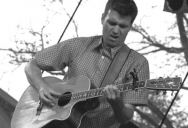
Joel Fafard
Getting Rooted
by Alyssa Ingold
July 31, 2009

